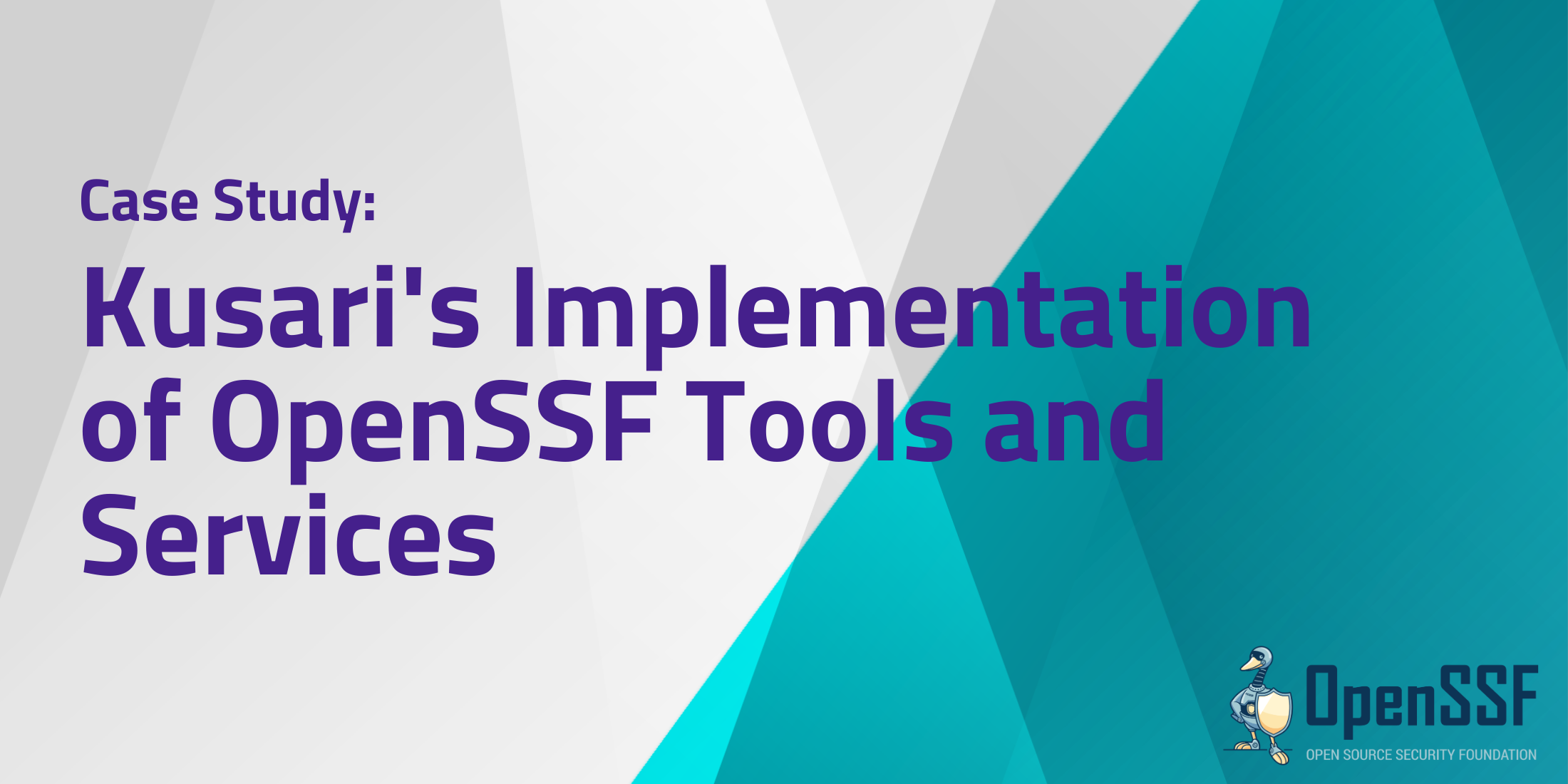
Challenge
For many years, the software supply chain has suffered from a lack of transparency and inefficient, unsustainable security management methods such as spreadsheets, emails, and word of mouth. The severity of these challenges was highlighted during incidents like Log4Shell, where the limitations of these approaches became evident — organizations struggled to identify where Log4J was used, and many applications continue to use vulnerable versions of this library years later. Meanwhile, the costs and regulatory requirements of attacks and vulnerabilities continue to increase. The founders of Kusari, driven by their passion and personal experiences with these problems, sought to create scalable and robust security solutions for their customers and users.
Solution
To address these challenges, Kusari created and co-developed the tool GUAC (Graph for Understanding Artifact Composition). GUAC integrates data from various OpenSSF tools and specifications to secure Kusari’s platform software and infrastructure. Kusari uses AllStar to enforce best practices for source code repositories and Scorecard to assess repositories for best practice adherence and highlight areas of concern. By adopting SLSA (Supply Chain Levels for Software Artifacts), Kusari follows Level 3 practices for building projects and generating provenance. OpenVEX is used to communicate the vulnerability status of software, while S2C2F (Supply-Chain Levels for Secure Commercial Facilities) ensures rules are followed for safely ingesting open source software. GUAC aggregates data from multiple sources like Scorecard, SLSA, OpenVEX, SBOM, OSV, and deps.dev to analyze supply chain risks and ensure compliance with S2C2F rules.
According to Parth Patel, Co-founder & Chief Product Officer at Kusari, “Working with OpenSSF projects is an invaluable part of building Kusari – both as a company and an enterprise platform. Participating in open source communities allows us to shape the future of software supply chain technology. The work we invest in OpenSSF communities pays off in having reliable software tools to build and integrate with the security ecosystem.”
Results
The implementation of these tools has significantly enhanced Kusari’s ability to manage and mitigate software supply chain risks. The adoption of open specifications like SLSA, S2C2F, and OpenVEX allows Kusari to generate and consume supply chain data that is broadly supported in the community. Tools like AllStar, Scorecard, and Sigstore help enforce best practices in code, build, and delivery processes. GUAC enables Kusari to ingest and analyze standardized metadata from multiple OpenSSF tools, providing a clear understanding of supply chain risks and facilitating quick responses to security incidents.
Engagement with OpenSSF Community
Kusari engages with the OpenSSF community in various capacities, including as maintainers and users of AllStar, GUAC, and SLSA, and as TAC sponsors for GitTUF, SBOMit, and S2C2F. This engagement is a way for us to innovate and give back within the open source community. Kusari is committed to helping shape and develop the future of software supply chain security. You can regularly find us in meetings with the Supply Chain Integrity Working Group; come join in.
Benefits and Challenges
Open specifications and tools provide flexibility for integration and modification, ensuring better interoperability. Security has a long history of being closed and vendor-centric, but that’s changing. Collaboration is required to protect effectively against current and future threats. That’s why Kusari is passionate about being a creator, maintainer, contributor and user of open source security tools.
Striking a balance between vendor support and community-driven efforts is crucial for sustainable success in open source projects. Arun Gupta, vice president and general manager of Open Ecosystem Initiatives at Intel and OpenSSF governing board chair emphasizes, “It’s vital that we foster collaboration between vendors and the open source community in a collaborative manner that respects the community. This balance is key to achieving a secure software ecosystem.”
Future Plans
Kusari plans to adopt additional OpenSSF tools such as GitTUF as they mature and looks forward to developments from SBOMit.
Conclusion
Kusari’s integration of OpenSSF tools and specifications has significantly bolstered its software supply chain security, providing scalable and efficient solutions for managing vulnerabilities. Through active participation in the OpenSSF community, Kusari continues to contribute to and benefit from the evolving landscape of open source security.